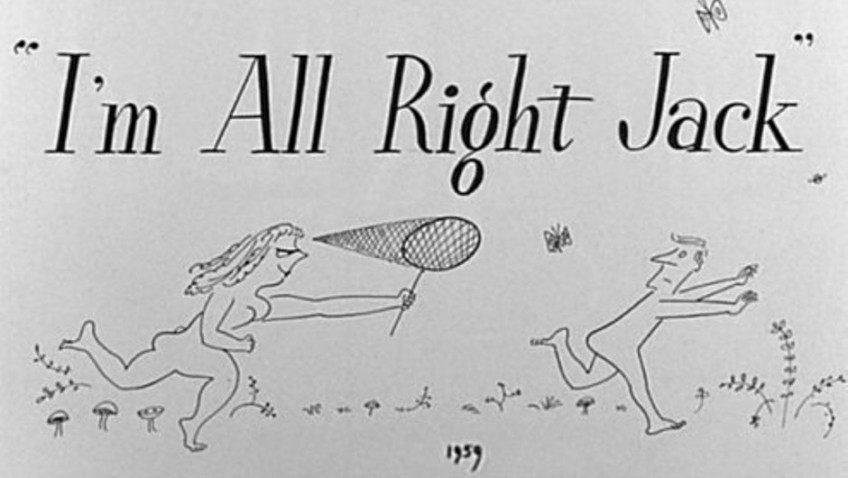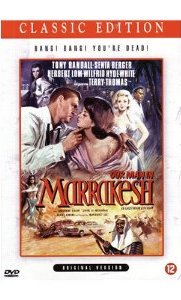Robert Tanitch reviews the latest DVDs
I’M ALL RIGHT, JACK (StudioCanal) The Boulting Brother’s popular satire on Trade Unions (in the “You’ve never had it so good” era) is a blistering attack not only on lazy workers but also on corrupt bosses. Ian Carmichael is the upper-class silly ass, on work experience, who causes a nation-wide industrial strike. Terry-Thomas (“You’re an absolute shower!”) is ineffectual middle-management, Peter Sellers, in his first big film role, is cast as an officious and ignorant shop steward. He initially turned the role down thinking it wasn’t funny. Sellers was wonderfully funny by being totally serious. “We do not and cannot accept the principle that incompetence justifies dismissal,” said the shop steward.”That is victimisation.”
BOYHOOD (Universal). Richard Linklater’s film, an interesting, ambitious and daunting experiment, takes place over 12 years, starting when the boy is 6 and ending on his first day at university. The film was shot every year with the same cast. It’s like Michael Apted’s 7 Up, except it’s not a documentary. It’s fiction. We watch the boy growing up. There is no drama as such. Time passes and life unfolds. All mothers will identify with the scene when Patricia Arquette realizes her son is off to university and she will no longer be seeing him every day. Ellar Coltrane, who plays the boy, did not see the film until it was finished. Imagine the traumatic experience of watching yourself growing up on screen. Coltrane has plenty of charm and becomes a better actor, as he grows up.
A MOST WANTED MAN (Entertainment One). Philip Seymour Hoffman, in his last role, is perfect as a disillusioned, world-weary spymaster who is working in an anti-terror unit in Hamburg. We all want to make the world a safer place. But the question is at what human cost? John Le Carre’s characteristically intelligent, complex and credible spy thriller raises all sort of moral dilemmas and ambiguities. Is the would-be asylum seeker innocent or is he a dangerous terrorist? Will he be saved, betrayed, arrested or killed? Whom can you trust? Banker? Human Rights lawyer? CIA? Can you trust anybody? Director Anton Corbijn grips the audience from start to finish and the climax is devastating.
TWO FOR THE ROAD (Eureka) is a bitter-sweet romantic screwball comedy which is not bitter enough. A marriage is on the rocks. Directed by Stanley Donen and scripted by Frederick Raphael, it is the way it is filmed, constantly jumping between the present, past and future, which gives the episodes, spread over a 12-year period, their appeal and edge. Audrey Hepburn and Albert Finney (seven years her junior) are the stars. Released in 1967, it feels like a French nouvelle vague film; and had it been produced in France and with a French director and French actors it would have been better received and had a better reputation.
SOUTHERN DISTRICT (Axiom). A rare opportunity to see a film from Bolivia. The camera has the star role, constantly circling the rooms and the furnishings, weaving its way, over the roof and around the garden. The film is shot in endless 390 degree single takes, which gets a bit irritating. The house is the main character and takes precedence over the actors, who are rarely centre screen. The house belongs to a rich and feckless Bolivian family and they are running out of money. The servants haven’t been paid for six months; but it is they (indigenous Indians) who run the household, keep it afloat (and who will eventually inherit the earth). The director is Juan Carlos Valdivia.
THE INTRUDER (StudioCanal) is a so-so British drama from the early 1950’s. What turned a good soldier into a thief? His former commander determines to find out by tracking down former members of the regiment. In a series of flashbacks we observe the soldier’s brave deeds in World War 2 and then what happened on the day he was demobbed. Jack Hawkins is his usual solid, reliable, compassionate self as the commander. Michael Medwin has one of his best roles as the soldier.
 THE FLYING SCOT (StudioCanal) is also known as The Mail Bag Robbery. If you are thinking of robbing an express train, it is particularly inadvisable to do so if you are having problems with a perforated ulcer. Neither the script, nor the director, nor the actors, are able to create any tension. This low budget 1950s British B feature was so low budget that it could only afford 6 passengers on the train.
THE FLYING SCOT (StudioCanal) is also known as The Mail Bag Robbery. If you are thinking of robbing an express train, it is particularly inadvisable to do so if you are having problems with a perforated ulcer. Neither the script, nor the director, nor the actors, are able to create any tension. This low budget 1950s British B feature was so low budget that it could only afford 6 passengers on the train.
OUR MAN IN MARRAKESH (StudioCanal) is also known, somewhat desperately, as Bang! Bang! You’re Dead! Tony Randall, Herbert Lom, Wilfred Hyde White, Terry-Thomas and Klaus Kinski, all caught up in a feeble 1960s comedy spy thriller, go through the motions. Director Don Sharp hasn’t a clue how to make the script work and cribs certain scenes from Hitchcock; but to no effect, lacking the Master’s touch. Randall, totally miscast, struggles to be funny.
1915 THE BATTLE FOR THE ALPS (Metrodrome) is also known as The Iron Mountain and The Silent Mountain. (Which of the three titles do you think is best?) An Austrian and an Italian marry. On their wedding day, just as they are taking the family group photograph, World War 1 breaks out. The film, set mostly in the Dolomites, is plodding, confusing, poorly scripted, poorly acted, poorly edited and poorly dubbed melodrama. Don’t wate your time. There many far better World War 1 films to see.
To learn more about Robert Tanitch and his reviews, click here to go to his website












